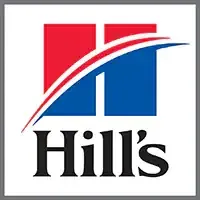wildlife rescue in Diamond Beach
supporting health & rehabilitation
At Diamond Beach Veterinary Clinic on the Mid North Coast, whilst we aren't a wildlife rescue centre, we accept all wildlife, medically assess them and provide appropriate treatments before passing them along to local rescue groups for the rehabilitation component.
Local wildlife rescue services are designed to address the unique needs of various species, from birds and reptiles to small mammals. We work closely with community members who encounter wildlife in need, providing guidance on handling and transportation to the clinic. Once animals arrive, they receive necessary medical care, including treatment for injuries, hydration, and nutritional support.
Diamond Beach Veterinary Clinic takes pride in being a community-focused clinic, fostering awareness and involvement in local wildlife conservation. Our team collaborates with local wildlife organisations, promoting education about the importance of protecting native species.
Wildlife rescue is an important part of our commitment to animal welfare and conservation, helping protect the natural beauty and biodiversity of the area. For advice or assistance with injured wildlife, please contact Diamond Beach Veterinary Clinic on (02) 6559 2277. We’re here to support both local wildlife and the community.
protecting local ecosystems
Wildlife rescue plays a central role in protecting local ecosystems by providing care for injured, orphaned or displaced wild animals.
Many native species face threats from habitat loss, vehicle collisions and human activity, leading to situations where immediate intervention is needed to support their survival and potential return to the wild. Wildlife rescue services are important in helping animals recover from these incidents, ultimately contributing to the health and balance of natural habitats.
The process of wildlife rescue begins when an injured animal is found and brought to a veterinary clinic or rescue organisation. Professionals first assess the animal’s condition, checking for injuries, illness or signs of malnourishment.
Immediate medical care is provided, including wound treatment, hydration and nutritional support tailored to the species. For animals needing further recovery time, a safe, controlled environment is created to help them heal.
Rehabilitation involves ongoing care and regular assessments to monitor the animal’s progress. Once the animal is deemed healthy and able to survive independently, the next goal is often re-release into a suitable habitat.
By providing these services, wildlife rescue helps protect native species, supports conservation efforts and educates the public on the importance of safeguarding local wildlife.
Frequently Asked Questions
-
What should I do if I find injured wildlife?
If you find injured wildlife, approach carefully and avoid handling unless necessary for safety. Contact a wildlife rescue service for guidance, as they have the training and resources to assist.
-
Can I care for injured wildlife at home?
Caring for injured wildlife at home is not recommended, as wild animals have specific needs and may become stressed in unfamiliar environments. A wildlife rescue service can provide proper care and rehabilitation.
-
What types of animals do wildlife rescue services help?
Wildlife rescue services assist various species, including birds, mammals, reptiles and other native animals. They provide medical care and support for injured, sick or orphaned wildlife until they can be safely released.
-
How can I help support wildlife rescue efforts?
You can support wildlife rescue by donating, volunteering or spreading awareness. Being informed about local wildlife and reporting injured animals promptly also contributes to conservation efforts.
Partners
Site links
About us
Services
House calls
pet care
animals
Trading Hours
- Monday
- -
- Tuesday
- -
- Wednesday
- -
- Thursday
- -
- Friday
- -
- Saturday
- Closed
- Sunday
- Closed
Weekends and Public Holidays
Emergencies only
Contacts
T. 02 6559 2277
ABN: 22 676 660 138
Qualified Vets
Accredited Nurse
RVN
AVN
CIV VN
TAE
Australian Veterinary Association
Veterinary Nurses Council of Australia
2023 Localsearch Certificate of Trust






